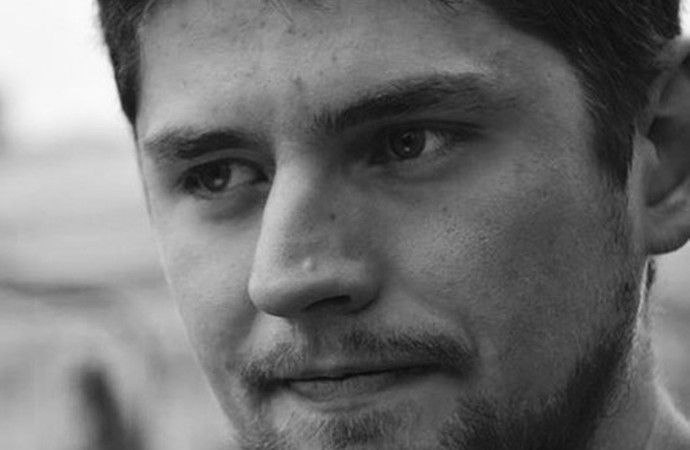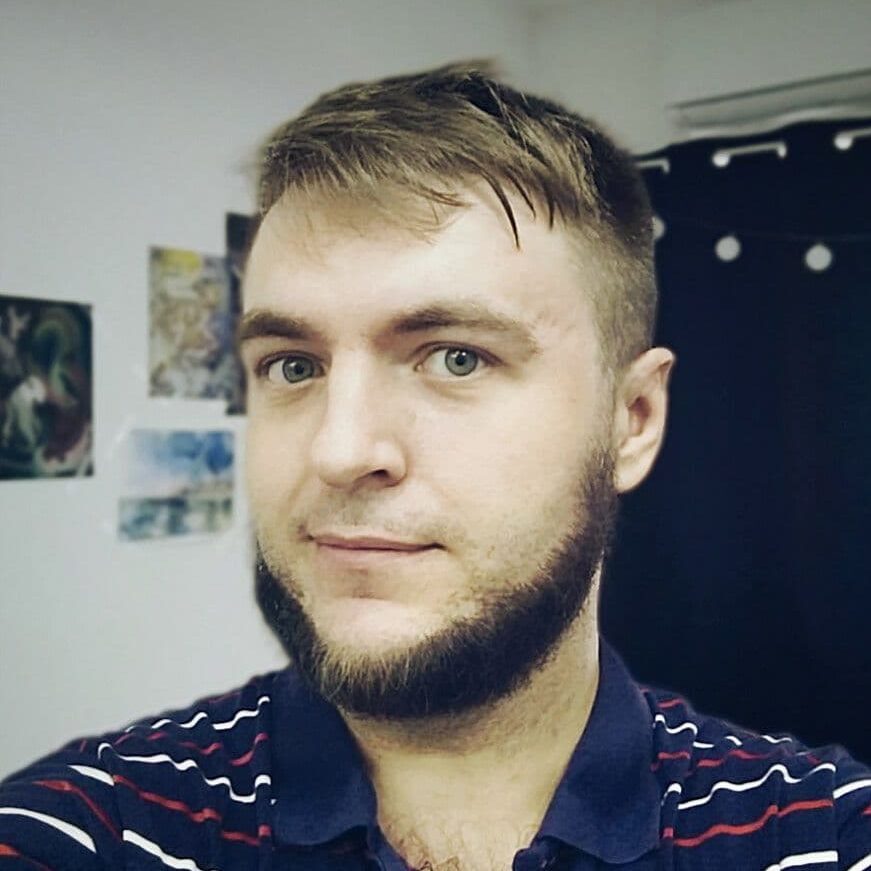





Українською читайте тут.
Alexei Navalny, a renowned Russian oppositionist, anti-corruption activist, and politician, passed away on February 16, 2024, in the Polar Wolf prison, where he was serving a three-decade sentence, as reported by the Russian Penitentiary Service. This news sparked intense reactions not only in global media but also among Russian propagandists. We delve into the primary statements from agitprop concerning the opposition leader's demise. The Media Detector team analyzed 2,440 posts across the Russian segments of Telegram, Instagram, and Vkontakte, all generated by 4 p.m. on February 16, 2024. This data was provided by Semantrum.
Navalny embarked on his political journey in 2000, coinciding with Putin's initial election as president of Russia, by joining the liberal Yabloko party and participating in several opposition movements. As he sought effective means to mobilize opposition against the Kremlin, Navalny turned his focus towards exposing corruption among high-ranking Russian officials and oligarchs. He openly criticized Putin, organized large-scale protests against governmental corruption, and protested against electoral fraud. Despite rallying the Russian "liberal opposition" to his cause, Navalny encountered obstacles in his political aspirations; his attempts to register his party were unsuccessful, and he was denied registration as a presidential candidate at least seven times, including in 2015 and 2018. Navalny faced frequent arrests by Russian law enforcement, with charges ranging from embezzlement to orchestrating unauthorized protests. These actions drew criticism from numerous international organizations and governments, who viewed them as politically motivated attempts to stifle dissent.
In August 2020, Navalny fell into a coma on a plane returning from Siberia to Moscow. Two days later, he was airlifted to Germany for medical treatment. German authorities determined that he had been poisoned with a nerve agent belonging to the Novichok group, a highly toxic chemical weapon developed by the Soviet Union. Navalny publicly accused the Kremlin of orchestrating the poisoning, although Russian authorities denied any involvement. Upon his return to Russia in January 2021, Navalny was immediately detained at the airport and sentenced to 2 years and 8 months in a general prison for violating the terms of his probation in a prior criminal case. Subsequently, in March 2022, he received an additional 9-year sentence. The following year, the Moscow City Court handed Navalny another 19 years of imprisonment in a special regime colony. He was charged with creating an extremist community, financing extremist activities, and inciting extremism on the Internet.
"Russian liberal" and the Ukrainian question
The stance of Alexei Navalny has stirred controversy within Ukraine. While he garnered support for his opposition to the Putin regime, Navalny faced criticism for his views on Ukrainian territorial integrity. A widely circulated saying, "a Russian democrat ends where the national question begins," was adapted by internet users to characterize Navalny as ending his liberalism where the Ukrainian question begins. Navalny's past statements, particularly from 2012, asserting the unity of Ukrainians and Russians as "one nation" and claiming that no state is more closely linked to Russia than Ukraine, drew reproach. Initially, Navalny expressed opposition to the annexation of Crimea in 2014, but later remarked that he wouldn't return Crimea to Ukraine if elected president. “Is Crimea a bologna sandwich, or something, to be passed back and forth?” he stated. He pledged to uphold the Minsk agreements, emphasizing the need to implement them to resolve the conflict in Donbas, acknowledging international and Ukrainian demands for compliance. In 2022, Navalny condemned Russia's invasion of Ukraine and called for protests. In February 2023, he outlined his plan to end the war, proposing the withdrawal of Russian troops from all of Ukraine's territory, including Crimea, by 1991, along with reparations from Russia.
"Putin finally killed Navalny": the reaction of the Western media
The death of Alexei Navalny within the confines of a penal colony has triggered a vehement reaction across Western media outlets. NBC News, for instance, highlighted that “Navalny's death leaves Russia’s opposition, wounded by years of harassment and prosecution, without a clear leader. All of Putin’s most high-profile critics are now either dead, jailed or in exile.” The New York Times editorial lamented “Aleksei A. Navalny may have been Russia’s best-known opposition figure, but hundreds of people are imprisoned for their political beliefs in Russia,” while CNN underscored that “Navalny joins a long list of Russian dissidents who died after challenging Putin’s legitimacy.” Reuters echoed similar sentiments, emphasizing that Navalny “robs the disparate Russian opposition of its most prominent leader as Putin prepares for an election which will keep the former KGB spy in power until at least 2030.” The Guardian wrote “Supporters and allies were visibly stunned by the news of his death, and many pointed the finger directly at the Kremlin.” Notably, Christo Grozev, a Bellingcat investigator renowned for his work on the poisoning of Russian figures, offered a pointed assessment: "Navalny was finally killed by Putin today."
"The Collective West" blamed for Navalny's death
In an attempt to obfuscate either the murder of Navalny by Russian special services or his death resulting from unlawful imprisonment for political motives, Russian propaganda endeavors to shift blame onto the West, labeling his murder as a "distraction" from various events. Employing the tactic of "mirroring," propaganda outlets accuse Ukraine, the USA, the EU, and "the collective West" of the same actions they allege against Russia.
For instance, Anton Krasovsky, with 9,000 subscribers on Telegram, speculated, "The first assumption that comes to mind is that the Americans orchestrated this to offset the consequences of the interview (Vladimir Putin to Tucker Carlson. - Ed.). However, the notion that they could execute a covert operation so seamlessly within a Russian regime facility is daunting."
The manipulation of tactics by Russian officials and propagandists to deflect responsibility for Navalny's demise onto the West stands as a stark example of cynicism. Sergei Mironov, leader of the "Just Russia — For Truth" party and a State Duma deputy, stated: “The circumstances of the event must be thoroughly investigated, measures must be taken to repel the information attack of the West. They have a rich history of despicable provocations with the poisonings of Lytvynenko, the Skripals and Navalny himself in 2020."
State Duma Speaker Vyacheslav Volodin joined the chorus, assigning blame for Navalny's demise to the "collective West:" “Washington and Brussels are to blame for Navalny's death... All of them, their names are well known: from the Secretary General of NATO and the US leadership to Scholtz, Sunak and Zelensky, the perpetrators of Navalny's death. Those who made a huge number of failed decisions and clung to their positions benefited from his death."
Agitprop outlets furthered the narrative, alleging Western sabotage aimed at disrupting Russia's upcoming "presidential" election, where Putin's re-election appears inevitable. A Telegram channel with 4.5 thousand subscribers posited Navalny's demise as a calculated move to safeguard Putin's position, while also issuing veiled threats to other opposition activists.
Meanwhile, former Ukrainian Oleksandr Semchenko with 305,000 subscribers on Telegram, noted: “Navalny was killed by Western special services. Only death benefits them. Using it, they will try to stir up unrest in Russia. This, by the way, is a warning to all Western hooligans: if your masters need your death, then you will die.” Some of Putin's supporters say that the reason for Navalny's death is related to the need for Western powers to finance Ukraine's hostilities against Russia. For example, in the chat of the Russian propaganda publication, which has 2.34 million subscribers, one of the users writes: "The Americans attacked Navalny, it is now profitable for them to get money for Ukraine."
A Telegram channel with 117,000 subscribers dismisses Navalny's significance, claiming he has faded from Russia's agenda, existing only in grant applications filed by his former associates in the West. This narrative aims to downplay Navalny's influence and suggests that his death will soon be forgotten amidst other pressing issues in Russia.
Additionally, propagandists resort to ridiculing Western leaders, referencing US President Joe Biden's statement in 2021 regarding Navalny's imprisonment. Another Telegram channel with 294,000 subscribers mocks Biden's warning of "devastating consequences" in the event of Navalny's death in prison.
Furthermore, propagandists emphasize the timing of Navalny's death during the opening of the Munich Security Conference, insinuating that the event will be exploited for information warfare purposes. Serhii Karnaukhov, with 133,000 subscribers on Telegram, suggests "Navalny's sudden death happened very appropriately - on the opening day of the Munich Security Conference. Such an event is an ideal information platform for promoting the information drive.” Other representatives of agitprop also blame the West for Navalny's death, but veiledly. The propaganda Telegram channel, which has 6 thousand subscribers, writes: "We have a legal state and no one was ever interested in the death of the blogger. But who benefits from his death, it is the Western curators of this whole national-treasonous pack. They will now spin the tragedy as cynically as possible for their own purposes. Navalny's death is too good an excuse to try to discredit Russia. And let's not forget that the witness also had to be removed, because he knew too much about the anti-Russian activities of Western structures." In this post, the propagandists call Russia a "state of law", which is absolutely beyond any common sense, given the level of political repression not only in the temporarily occupied territories of Ukraine, but also in Russia itself.
"Avdiivka frontline news is important, not Navalny's death"
"Navalny is dead, and the hell with him. There, ours successfully advance on Avdiivka. That's the main thing. We don't care what the West or the reptilians say," wrote the Telegram channel, which is focused on the occupied territories of Ukraine and has 179,000 subscribers.
Similarly, other pro-Russian and Russian bloggers framed Navalny's death as a deliberate distraction from the ongoing fighting in Avdiivka, which they speculate is being pursued with the upcoming election in mind. A Russian propaganda Telegram channel with 7,700 subscribers insinuated Western involvement in Navalny's fate, suggesting that when problems arise for Ukraine at the front, Western provocations follow suit.
In another instance, a publication with an audience of 71,000 readers asserted that Navalny's death was engineered to divert media attention away from Avdiivka: “"Navalny died specifically to help Ukraine shift the emphasis in the media from the Avdiyivka area. Zelensky must now grant Navalny the status of a hero of Ukraine."
Anatolii Shariy, a prominent propagandist with 1.15 million Telegram subscribers, echoed this sentiment, "And yet again an infomercial that interrupts Zelensky's failure in Avdiivka. The Kremlin continues to help Kyiv." Shariy likes to "bombard with versions" of events in order to refer to those posts in subsequent posts that are suitable for commenting on the news in the light he needs.
"It happens", or "They worried about Navalny like nobody else"
One operative line of reaction from representatives of the Russian authorities has been to normalize and trivialize Navalny's death, suggesting that such incidents are not uncommon. This narrative was reinforced by alleged "insights" of Kremlin channels, such as Russia Today, who propagated the notion that Navalny's demise was due to a blood clot—a common cause of death worldwide. According to reports, this version was actively promoted on the VK social network by internet bots associated with the Kremlin, with references to Navalny's past political hunger strikes as a contributing factor. The blood clot is mentioned in 42 out of about 700 relevant comments about Navalny on this network processed by the publication. Bots also write that the blood clot that allegedly killed Navalny is a consequence of Navalny's past political hunger strikes.
Vladimir Dzhabarov, deputy chairman of the Committee on International Affairs of the Federation Council, attempted to downplay the significance of Navalny's death, stating, "Russia had no motive to harm Navalny's health whatsoever. It's simply an accident, it happens." State Duma deputy Vitaly Milonov, known for his anti-LGBTQIA stance, echoed this sentiment, claiming that Navalny's death was not a targeted act and that he had received more attention and care than other prisoners in Russia. Milonov suggested that Navalny's death could benefit Western countries by portraying him as a martyr, but emphasized that it was not in Russia's interest.
To add plausibility, the generally poor conditions of the Russian penitentiary system were cited as an abstract culprit for Navalny's death. A lesser-known Russian blogger speculated that Navalny's death was a natural consequence of the harsh conditions and inadequate medical care within the Russian penal system. This narrative was further disseminated by various news telegram channels, each with relatively modest audiences.
Trivialization of death
The traditional reaction to "inconvenient" events is the dryness of official comments by Russian officials, which are later supplemented by short facts-observations. This can be characterized as a typical Kremlin tactic: to portray any force majeure as mundane as possible, as if nothing sensational had happened. But unlike the simple trivialization and normalization of a certain fact, there is an accumulation of details that encourage the reader to follow a certain "logic".
For example, Putin's press secretary Dmitry Peskov formulated his answers regarding the death of a politician as briefly as possible, referring at the same time to "procedures and algorithms." For example, the Federal Penitentiary Service of Russia ("FSIN") has its own instructions on how to act in the event of the death of a prisoner, or "the doctors will sort it out." In turn, Telegram channels are filled with typical messages that give a minute-by-minute account of what happened at noon on February 16 in the "Polar Wolf" colony: "The ambulance arrived in 7 minutes. It took another 2 minutes to get to the patient. The resuscitation procedures lasted for half an hour," the Telegram channel with more than 1.5 million subscribers quotes the comments of representatives of the Labytnangi hospital. The Federal Penitentiary Service itself spread the message that "the corresponding commission has already been created and sent to the colony in accordance with the established procedure."
The Russian politician Sergei Mironov spoke in the same vein, who emphasized in his statement that "the death of Navalny must be thoroughly investigated - the investigation must give a clear answer to the question of what happened" (the statement was distributed by the channel to 120,000 subscribers and 44 other sources in the sample) . The already prepared version with the widely known diagnosis of "thrombus detachment" turns into one that needs to be either confirmed or refuted. It is already established as a "baseline" with which any of those who deny the comments of official officials will be forced to discuss. Perhaps this version appeared also because some Telegram channels shared "Navalny's last video", in which he participated in a series of court hearings online on February 15 and looked cheerful (the video channel writes about it several times and publishes it on more than 1.5 million subscribers, it is linked by a number of other channels).
Also, Russian news telegram channels write about a number of events that happened with unusual speed. For example, attention is drawn to the fact that Alexei Navalny fainted at 11 a.m. local time, taking into account the time zones, the news of his death appears almost instantly in the official TASS feed in Moscow. "If the timing is right, then the speed is simply unbelievable. It's as if they were waiting, preparing and released the prepared news." At the same time, reports began to spread very quickly, as if MPs of "United Russia" were forbidden to comment on the topic of Navalny. The channel with 1.5 million subscribers writes that deputies were allegedly given this instruction less than 2 hours after the first notification from the Federal Correctional Service.
Propaganda is employing mockery, pinning blame on Ukrainians
Russian propaganda has seized upon the reactions of Ukrainians to Navalny's death, using it as an opportunity to vilify them as "man-eaters" and "Nazis." In the sample analyzed, 34 messages were discovered that quoted or shared a screenshot of Ukrainian activist Serhiy Sternenko's post about Navalny's demise, framing it as "Ukrainian Nazi Sternenko rejoices over Navalny's death." Such posts aim to foster animosity towards Ukrainians, questioning why support should continue for a nation where "Nazis" allegedly celebrate the death of others.
Simultaneously, some propagandists resort to humor, ridiculing Navalny himself and attempting to diminish the emotional weight of his passing. There is a proliferation of jokes circulating on social networks and forums suggesting that Navalny secretly joined the "Storm Z" detachments, a reference to a failed rebellion and subsequent recruitment of Russian prisoners. These jokes, including memes and generated audio tracks, emerged even prior to Navalny's death. Photos of Russian soldiers resembling Navalny were utilized in these jests, further trivializing his significance.
Following Navalny's death, the proliferation of jokes and memes has surged. Some authors suggest that Navalny didn't die from a "thrombus" but heroically while storming Avdiivka. In the comments section of one of the largest Z-telegram channels with 2.4 million subscribers, individuals write: "Navalny was killed during the storming of Cheburashka in Avdiivka tonight. Acting as part of Storm Z, having shot all the bullets, continued the assault... Sleep in peace, Alexei. You were a piece of shit during your life, but you washed away the shame before you died."
Another category of propagandists' jokes about Navalny serves their main objective: to deflect responsibility for his death away from the Russian leadership and onto others. A small Telegram channel, which focuses on disseminating information about occupied Ukrainian territories, sarcastically commented on Volodymyr Zelensky's statement regarding the Kremlin's responsibility for Navalny's death: "Whether it's rain or hail, it's all Putin's fault."
Some propagandists express outrage over Navalny's death, ironically linking it to a new phase of more active suppression of other Russian opposition figures, including prominent cultural representatives. Marina Akhmedova, a Russian propagandist and writer with nearly 72,000 subscribers on Telegram, wrote: "For me, his death is like the end of an era. Those who read Akunin also listened to Zemfira, and the main trend was to betray the Motherland. A new era has begun, and the blood clot has broken off."
In response to Navalny's death, Russian "opinion leaders" and propagandists employed various tactics to manage the narrative and mitigate its negative repercussions on the Russian authorities. One notable example is a Russian propaganda channel with 2.3 million subscribers inviting people to subscribe on behalf of Navalny himself: "Hello everyone, this is Navalny. I died today. Subscribe to the channel. They are telling the truth here."
Such actions illustrate a concerted effort to manipulate public perception and maintain control over the discourse surrounding Navalny's demise. Additionally, the use of Navalny's image or likeness in this manner reflects the propagandists' intent to shape the narrative in alignment with their own agenda.
Main photo: screenshot of Alexei Navalny's video


